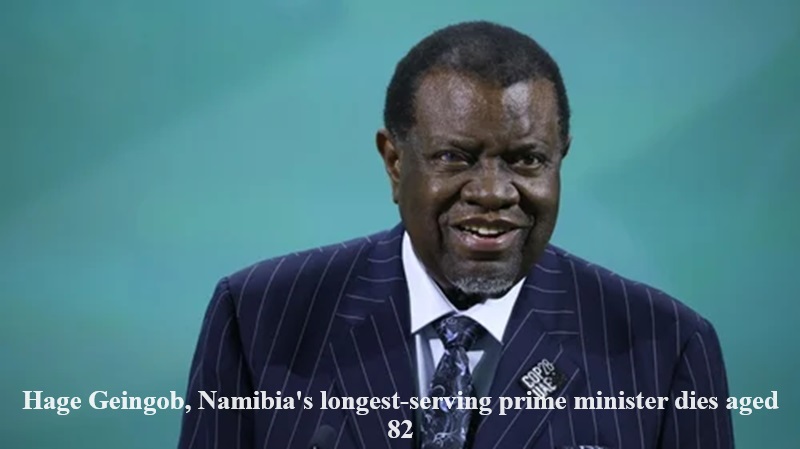
Hage Geingob, Namibia’s longest-serving prime minister and its third president, passed away at the age of 82 in a Windhoek hospital, where he was receiving treatment for cancer. Geingob, born in a village in northern Namibia in 1941, became the country’s first president from outside the Ovambo ethnic group, constituting over half of the population. His early years were marked by activism against South Africa’s apartheid regime, which ruled Namibia at the time. Geingob’s anti-apartheid stance led him into exile, spending nearly three decades in Botswana and the United States.
During his time in the US, Geingob, known for his tall stature and deep voice, advocated fervently for Namibia’s independence. He represented the SWAPO liberation movement, now the ruling party, at the United Nations and across the Americas. In the early 1970s, he commenced a career with the UN, focusing on governance issues. Returning to Namibia in 1989, a year before the country gained independence, Geingob established himself as a centrist figure.
Reflecting on his return to Namibia after 27 years in exile, Geingob expressed the significance of the journey in building a new Namibia. His contributions to the nation’s independence and subsequent leadership were pivotal, making him a prominent statesman and leader in Namibia’s history. His passing leaves a legacy shaped by anti-apartheid activism, a commitment to governance, and dedicated service to the people of Namibia.

Post Your Comments